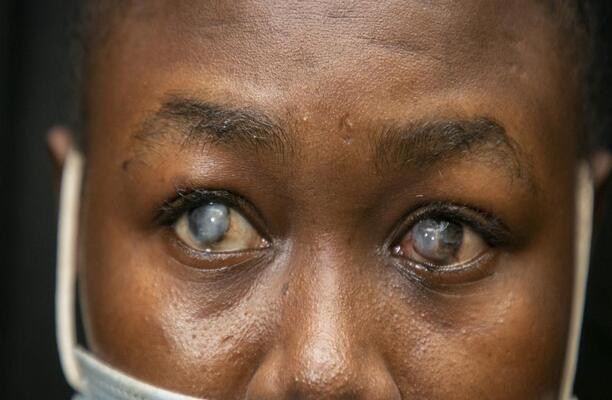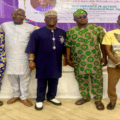By Ejiofor Toochi
Blindness is quietly becoming one of Nigeria’s biggest public health challenges. According to recent findings from the David Umahi Federal University of Health Sciences (DUFUHS), about 24 million Nigerians are currently living with blindness or severe visual impairment — a figure that experts warn could rise if urgent action isn’t taken.
The university’s Vice-Chancellor, Jesse Uneke, noted that about 4.2 per cent of Nigerians aged 40 years and above are already blind, while over 4 million adults in this age group suffer from moderate to severe visual impairment.
Yet, eye specialists insist that many of these cases are preventable, with DUFUHS reporting that 84 per cent of blindness in Nigeria stems from preventable causes. The most common culprits include untreated cataracts, glaucoma, refractive errors, and eye infections. Poor access to quality healthcare, late diagnosis, self-medication, and the high cost of treatment have worsened the problem.
Experts also warn that certain everyday habits, like prolonged screen time without breaks, rubbing the eyes with dirty hands, and skipping routine eye checks, can contribute to long-term eye damage.
Simple steps to protect your sight
While the statistics may sound alarming, health professionals emphasise that taking small steps consistently can protect your vision. Here are key actions Nigerians can start with:
- Get regular eye tests: Visit an eye clinic or optometrist at least twice a year, even if your sight seems fine. Early detection makes treatment easier and cheaper.
- Eat for eye health: Include leafy vegetables, carrots, tomatoes, fish, eggs, and nuts in your meals. These foods contain vitamins and antioxidants that keep the eyes healthy.
- Manage underlying health conditions: Keep blood pressure and blood sugar levels in check to prevent diabetes-related eye problems.
- Avoid self-medication: Resist using unprescribed eye drops or herbal mixtures. They can worsen infections or cause permanent damage.
- Protect your eyes from injury: Use protective eyewear during risky activities like grinding, welding, or playing sports. Dust, chemicals, and sharp objects can cause lasting damage.
- Respond quickly to symptoms: Don’t ignore signs like redness, pain, itching, or blurred vision. Early treatment can save your sight.
A call for awareness
Preventing blindness starts with awareness. Eye health should be part of everyday conversation, just like malaria or blood pressure. Community health workers and local media can play a major role in spreading the message that eye care is not a luxury; it is essential.
Take care of your eyes today, so you don’t lose your sight tomorrow!








